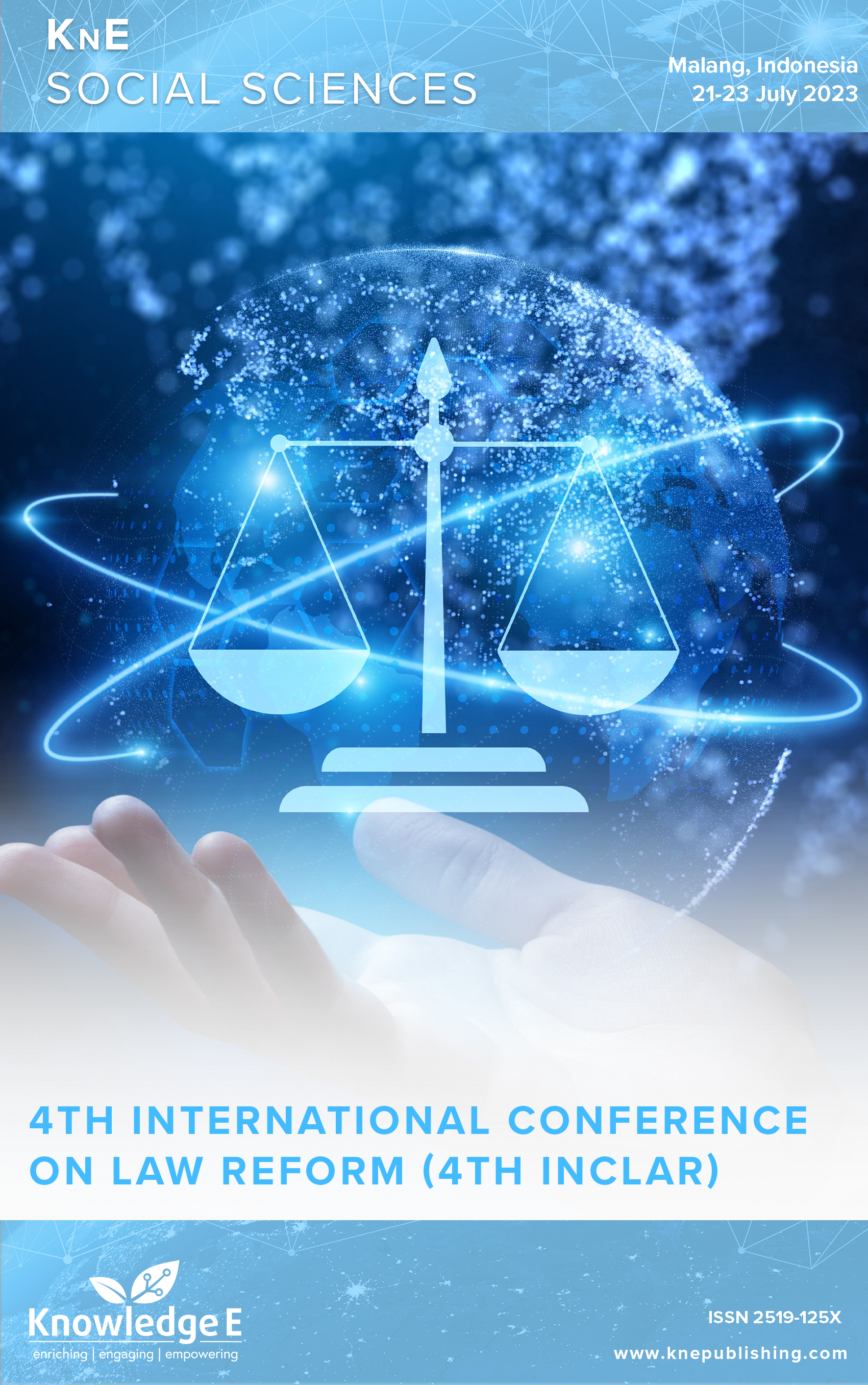The Comparative Study of Muslim Friendly Homestay Programs in Indonesia and Malaysia: Social Legal Perspective
DOI:
https://doi.org/10.18502/kss.v8i21.14760Abstract
This paper aims to compare the implementation of the halal tourism concept in Indonesia and Malaysia, especially in the case of Muslim friendly homestays. The study methodology used is comparative normative juridical research. The study was conducted by taking an inventory of the laws and regulations regarding halal tourism that have been owned by several regions in Indonesia. Then compared with the implementation of halal tourism, especially in organizing Muslim friendly homestay on Lake Toba, North Sumatra with Malaysia. The results of the research show that Indonesia does not yet have a legal umbrella governing halal tourism, only a few cities and provinces have regional regulations. Regions with Halal Tourism Regulations Regimes that already have Halal Tourism Regulations include Regime No. 51 of 2015 issued by the governor of West Nusa Tenggara, Regime No 1 of 2020 issued by the province of West Sumatra, Regime No 19 of 2022 issued by the provincial governor of North Sumatra concerning regulations for implementing halal tourism regional regulations. Regime No 6 of 2020 issued by the regency of Bandung Regime No 9 of 2019 issued by the provincial government of South Sumatra concerning halal tourism, the data indicates that Indonesia lacks a legal framework for halal tourism. It stands in contrast with Malaysia, which achieved success in the halal tourist sector partly as a result of the creation of halal standards and the nationwide adoption of a systematic halal assurance system. Malaysia’s Islamic development department initiated a policy of standardizing halal food and standards such as Muslim Friendly Hospitality Services (MFHS), which contain three important components: the principle of providing accommodation, tour packages, and guide tours based on Islamic principles.
Keywords: comparative study, Muslim friendly homestay, legal framework
References
K. PPN/Bappenas. Masterplan Ekonomi Syariah Indonesia. Jakarta: Kementerian PPN/Bappenas; 2018.
C. Rating, “Global Muslim Travel Index,” 2021.
WTTC. “Travel & tourism global economic impact & issues 2018,” 2018.
C. Rating, “Indonesia Muslim Travel Index 2019,” 2019.
D. Standard, “State of the Global Islamic Economy Report 2022,” 2022.
M. R. S. & A. R. Zaki. Hukum Pariwisata di ASEAN. Jakarta: Kencana; 2021.
Kemenparekraf. “Destinasi Moslem Friendly Tourism Tanah Air,” Kementerian Pariwisata dan Ekonomi Kreatif Republik Indonesia, 2022. [Online]. Available: https://kemenparekraf.go.id/ragam-pariwisata/Destinasi-Moslem-Friendly- Tourism-Tanah- Air. [Accessed: 20-Feb-2023].
KNKES. “Sembilan Strategi Kemenparekraf,” Komite Nasional Ekonomi dan Keuangan Syariah, 2019. [Online]. Available: https://kneks.go.id. [Accessed: 20-Feb- 2021].
K. PPN/Bappenas. Masterplan Ekonomi Syariah Indonesia. Jakarta: Kementerian PPN/Bappenas; 2018. p. 71.
K. PPN/Bappenas. Masterplan Ekonomi Syariah Indonesia. Jakarta: Kementerian PPN/Bappenas; 2018. p. 76.
Rating C. Mastercard-Cresentrating Global Muslim Travel Index 2022. Crescent Rating; 2022. p. 29.
Sayekti NW. Halal tourism development strategy in Indonesia. J. Kaji. 2019;24(3).
Sofyan R. Prospek Bisnis Pariwisata Syariah. Jakarta: Republika; 2012.
Ruwaida N. Urgensi Standardisasi Pariwisata Halal Dalam Pengembangan Pariwisata Di Indonesia Perspektif Maqȃshid Asy-Syarî‘Ah. Institut Ilmu Al-Qur’an; 2020.
Dermawan W, Akim A, Primawanti H; W. & A. & H. P. Dermawan. Paradiplomasi Bandung Menuju Kota Wisata Halal. Indones. Perspect. 2020;5(2):183–200. DOI: https://doi.org/10.14710/ip.v5i2.34133
Rating C. Mastercard-Cresentrating Global Muslim Travel Index 2022. Crescent Rating; 2022. p. 34.
I. T. C. of Malaysia. “Islamic Tourism Standard,” Islamic Tourism Centre of Malaysia, 2023. [Online]. Available: https://itc.gov.my/industry/islamic-tourismstandards/. [Accessed: 20- Feb-2023].
Z. F. A. & N. H. S. & A. H. A. H. Irshad. “The concept of Muslim friendly tourism and its implementation in Malaysia.” J Pengur dan Penyelid Fatwa. vol. 27, no. 2, 2022. DOI: https://doi.org/10.33102/jfatwa.vol27no2-SE.484
O. & M. L. N. H. & M. D. S. & S. Z. A. K. & M. B. Z. & H. H. K. S. Rashidi. Muslim-friendly’s homestay in Malaysia: Issues and challenges. Adv Sci Lett. 2015;21(6). DOI: https://doi.org/10.1166/asl.2015.6188
Yusof ZB. “Islamic guiding principle (Shari’ah Law) for architectural interpretation of housing.” Academica.edu, 2014. [Online]. Available: https://www.academia.edu/2451723/ islamic_guiding_principle_shariah_law_for_architectural_interpretation_of_housing. [Accessed: 25-Mar-2023].

